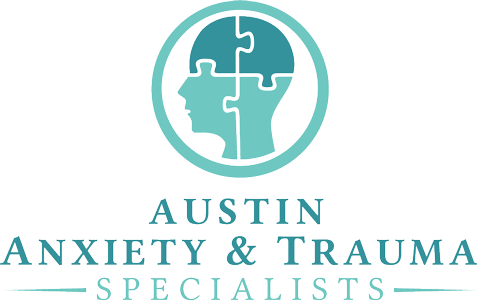We all need (and deserve) a little treat every now and then. But emotional eating — also referred to as stress eating — can be a challenging habit to break. Whether you’re stressed, anxious, or just feeling bored, it can be tempting to reach for your favorite comfort food as a way to cope. While eating to soothe emotions may initially provide comfort and relief from stress, it can ultimately lead to physical and mental consequences that worsen the very problems it was meant to help manage.
If you’re struggling with emotional eating, there are strategies you can try to help manage the urge to eat when you’re feeling overwhelmed. In this blog post, we’ll first cover the signs to help recognize when snacking has turned into an unhealthy coping mechanism, mental and physical effects, why we turn to food to deal with stress, and self-care strategies to help stop emotional eating.
Signs of Stress Eating
Emotional eating is a common symptom of mental conditions related to emotional dysregulation, such as generalized anxiety, chronic stress, depression, Attention-Deficit Hyperactivity Disorder (ADHD), Post-Traumatic Stress Disorder (PTSD), and more. There are some common signs and symptoms that may indicate you are engaging in emotional eating—
- Eating when you’re not physically hungry
- Craving specific types of food
- Eating quickly or mindlessly
- Feeling guilty or ashamed after eating
- Using food to numb or distract from emotions
Emotional Eating Symptoms
Emotional eating can have a range of negative effects on both the mind and body. Here are some of the ways your health might be suffering from binge eating:
- Weight gain: Emotional eating can lead to overeating and weight gain, which can in turn increase your risk of obesity, diabetes, and heart disease.
- Poor nutrition: When you turn to comfort foods during times of stress, you may not be getting the nutrients your body needs to stay healthy.
- Increased anxiety: Emotional eating can lead to feelings of guilt, shame, and anxiety, which can create a cycle of negative emotions and eating behaviors.
- Decreased self-esteem: Chronic emotional eating can take a toll on your self-esteem and confidence, leading to feelings of shame and self-blame.
- Negative impact on mental health: Emotional eating can exacerbate symptoms of depression and anxiety, making it harder to manage these conditions.
The Psychology Behind Emotional Eating: Why We Stress Eat
Emotional eating is a complex behavior that is influenced by a variety of psychological and social factors. Some studies suggest that this habit could develop as early as childhood. For instance, growing up in an environment where food was used as a reward or punishment can contribute to emotional eating patterns later in life.
One major psychological factor that can contribute to emotional eating is stress. When we experience stress, the hormone cortisol is released, which can increase feelings of hunger and the desire for high-calorie, salty, sweet, fatty, and processed foods. Eating can temporarily calm that stress because it releases a chemical called dopamine, which makes us feel good. Additionally, many folks coping with stress, anxiety, or ADHD channel nervous energy into oral fixations, such as biting nails or snacking compulsively.
Social factors can also play a role in emotional eating. For example, peer pressure or social norms around food can influence our behavior. In a party setting where everyone is indulging in high-calorie foods, it may be more difficult to resist the urge to emotionally eat. Or, a well-meaning friend may bring over sweets and alcohol to help support you after a stressful week of work. While occasional indulgence is normal, social factors can contribute to unhealthy coping.
Self-Care Strategies to Manage Emotional Eating
Practice mindful eating. One of the most effective ways to manage emotional eating is to practice mindfulness. This means being fully present in the moment and paying attention to your thoughts, feelings, and bodily sensations. When you feel the urge to eat due to an emotional trigger, take a few deep breaths and tune in to how you’re feeling. Are you really hungry, or are you eating to cope with a difficult emotion? By practicing mindfulness, you can become more aware of your emotional eating triggers and better regulate your emotions.
Keep a food journal. Keeping a food journal can help you become more mindful of your eating habits. Write down what you eat, when you eat, and why you’re eating. This can help you identify patterns in your emotional eating and develop strategies for managing them. For example, you may notice that you tend to reach for sugary snacks in the afternoon when you’re feeling tired. By recognizing this pattern, you can plan ahead and have a healthier snack option on hand to help manage your cravings.
Find healthier ways to cope with emotions. Stress eating is often used as a coping mechanism to deal with difficult emotions. However, there are many other healthy ways to cope with stress, anxiety, and other difficult feelings. Journaling can be a great way to help process and relieve ruminating thoughts as well as boost self-awareness. Yoga, meditation, grounding exercises, fidget toys, or other stress-relieving activities could also help you manage emotions without turning to food.
Practice self-care. Taking care of yourself physically and emotionally can help reduce the urge to emotionally eat. Make sure you’re getting enough sleep, exercise, and healthy food throughout the day. Additionally, practice self-compassion and kindness towards yourself. Instead of beating yourself up for emotional eating, acknowledge that it’s a difficult habit to break and focus on making positive changes one step at a time.
Seek therapy. If you find that you are struggling to manage your emotional eating on your own, it may be helpful to seek the guidance of a therapist. Therapy can provide a safe and supportive environment to work through underlying emotional issues that may be contributing to your emotional eating. A therapist can help you develop healthier coping mechanisms and provide you with the tools you need to break the cycle of emotional eating.
If you’re not sure where to start, that’s okay too. Book an appointment with us at Austin Anxiety and Trauma Specialists and we’ll start the conversation.
It can get better. We can help.






